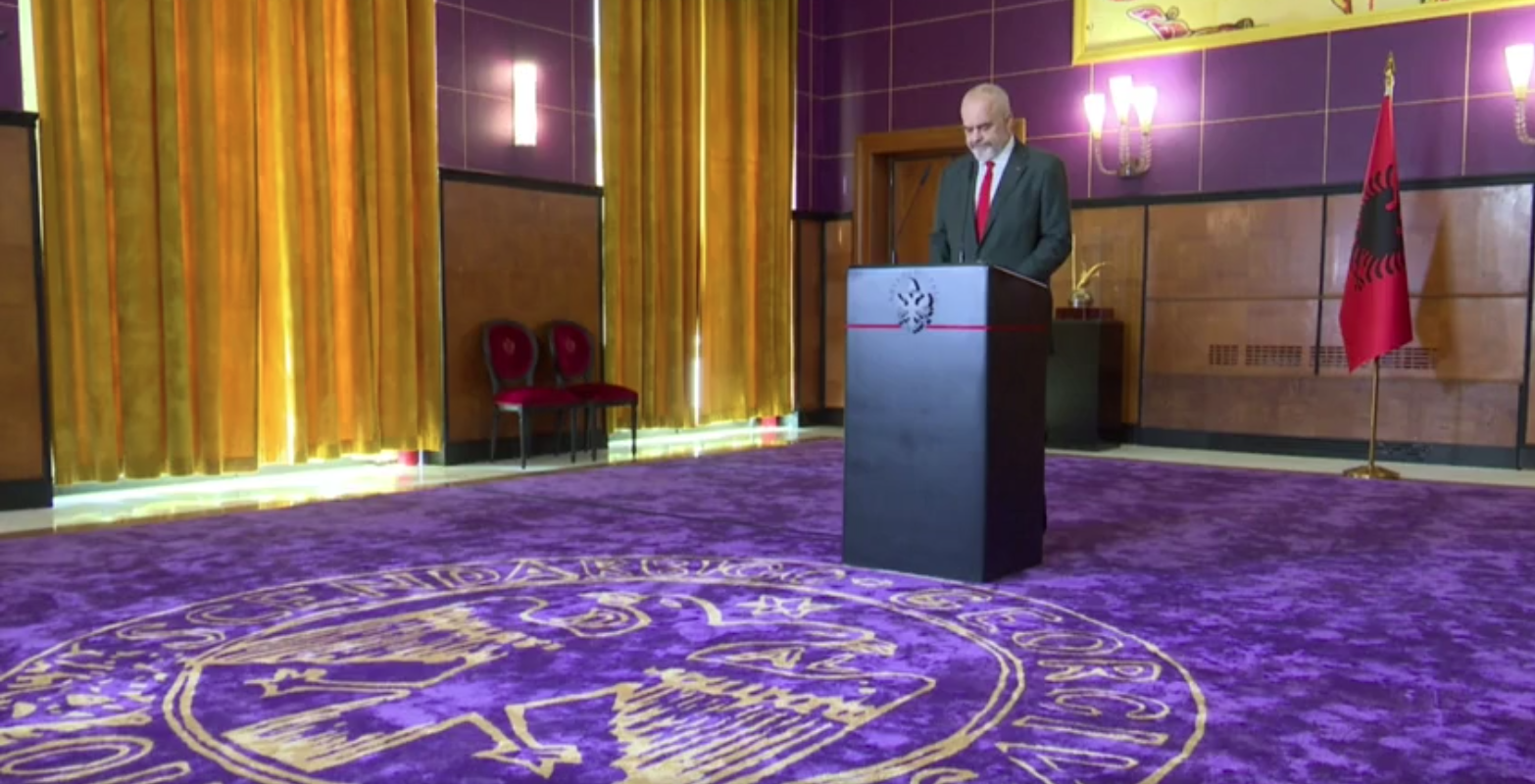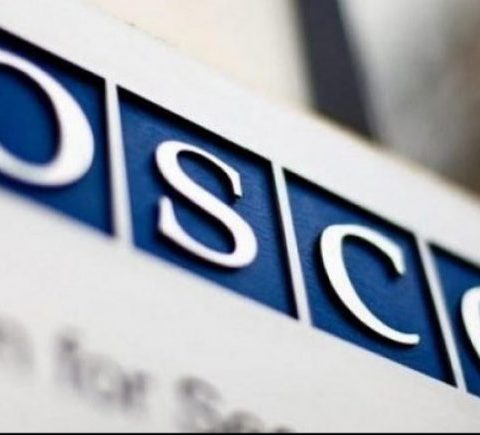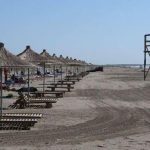TIRANA, Oct. 4 – Albania’s prime minister, Edi Rama, has made a surprise and dire prediction — that the country is headed into a massive energy crisis this winter — at a special address to the public on Sunday.
In his newly-refurbished deep purple press room, Rama said in a dire tone the upcoming crisis could be as large in magnitude as the twin natural disasters of the earthquake and the pandemic.
“In the economic and social life there are likely to be negative effects in the lives of families, businesses and society as a whole,” Rama said. “The extraordinary energy crisis has only just started to show its presence.”
He blamed the crisis on global trends that are leading to sharp increases of gas and fuel prices, warning that the prices could see unprecedented increases.
Experts note that fuel and power price increases typically reverberate throughout the economy, leading to higher consumer prices — which could lead to an even higher inflation that is already being pushed up by other factors.
Rama warned Albanians that the crisis could have shocking consequences and that the winter ahead would be a difficult one.
He said those most vulnerable and small businesses would be helped by the state, but did not offer any concrete measures.
Following very low global energy prices during the pandemic, they are rising up sharply as the recovery takes hold. But the speed at which they are increasing has many worried. In Albania fuel is up 10 to 15 percent and gas is up 20 percent just in the past two weeks, reflecting international market movements.
Albania already has the region’s highest fuel and electricity prices. While the country produces a lot of electricity through its hydro-electric power plants it has to import it when there isn’t enough rain.
Albania also imports all of its fuel, which is then loaded with taxes the government can’t or won’t collect elsewhere, leading the prices far higher that just across the border. While it is a producer of crude oil, it has to export it because it no longer has any refining capacity.
Fear of political implications?
Some critics, like former Socialist finance minister Arben Malaj, said the PM was pointlessly “spreading panic” as the crisis was predictable and will be temporary — and not nearly as bad as the earthquake and the pandemic.
Other experts have noted that Rama might be exaggerating the situation in order to justify what would be a deeply unpopular increase in electricity rates, which last increased in 2015 following a major crackdown on power theft and losses that saw hundreds of Albanians arrested and forced people to pay their overdue power bills through an iron-hand approach.
The political opposition criticized Rama for not offering any concrete solutions to the problem, and blamed Rama’s bad governance for the state Albania finds itself in.
Democratic Party chairman Lulzim Basha said the opposition had offered a series of solutions to deal with the situation, from reducing VAT on basic goods to state subsidies on power use to help the most vulnerable.
Basha added the opposition would work on the ground level to channel people’s concerns over the price increases, which he said were directly linked to Rama’s handling of the economy.
“This is not a hole due to global markets, this is a hole due to corruption … and bad governance ,” Basha said.
The opposition has said the state-run companies that deal with the power sector are being mismanaged, spending millions on luxury while Albanians pay the highest prices in the region.
Moreover, some observers pointed out that Rama’s press conference came just hours before the Pandora Papers were released by a global network of investigative journalists.
The massive documents cache included findings that showed an Albanian electricity distribution state-owned company had spent millions hiring a Bosnian company, which in turn through the use of offshore companies had channeled millions of euros to a small UAE-based consultancy headed by an Albanian businessman with political connections, according to an investigation by the BIRN network.
Back to 2005?
Albania’s state-owned power company, OSHEE, just closed its auction purchase of imported electricity for October at 233 euros per MW, the highest price at which Albania has ever bought electricity abroad. A year ago, that price was 50 euros lower, according to Monitor magazine. At that price, 13 million euros get the country about a week worth of electricity. And officials say it’s not just the price, but the quantity that will be the problem.
So unless there is massive rainfall, and quickly, to feed Albania’s hydroelectric reservoirs, the country could be headed for the type of power supply crisis it has not seen since 2005, when rolling blackouts due to lack of electricity crippled the economy and life in the country.










